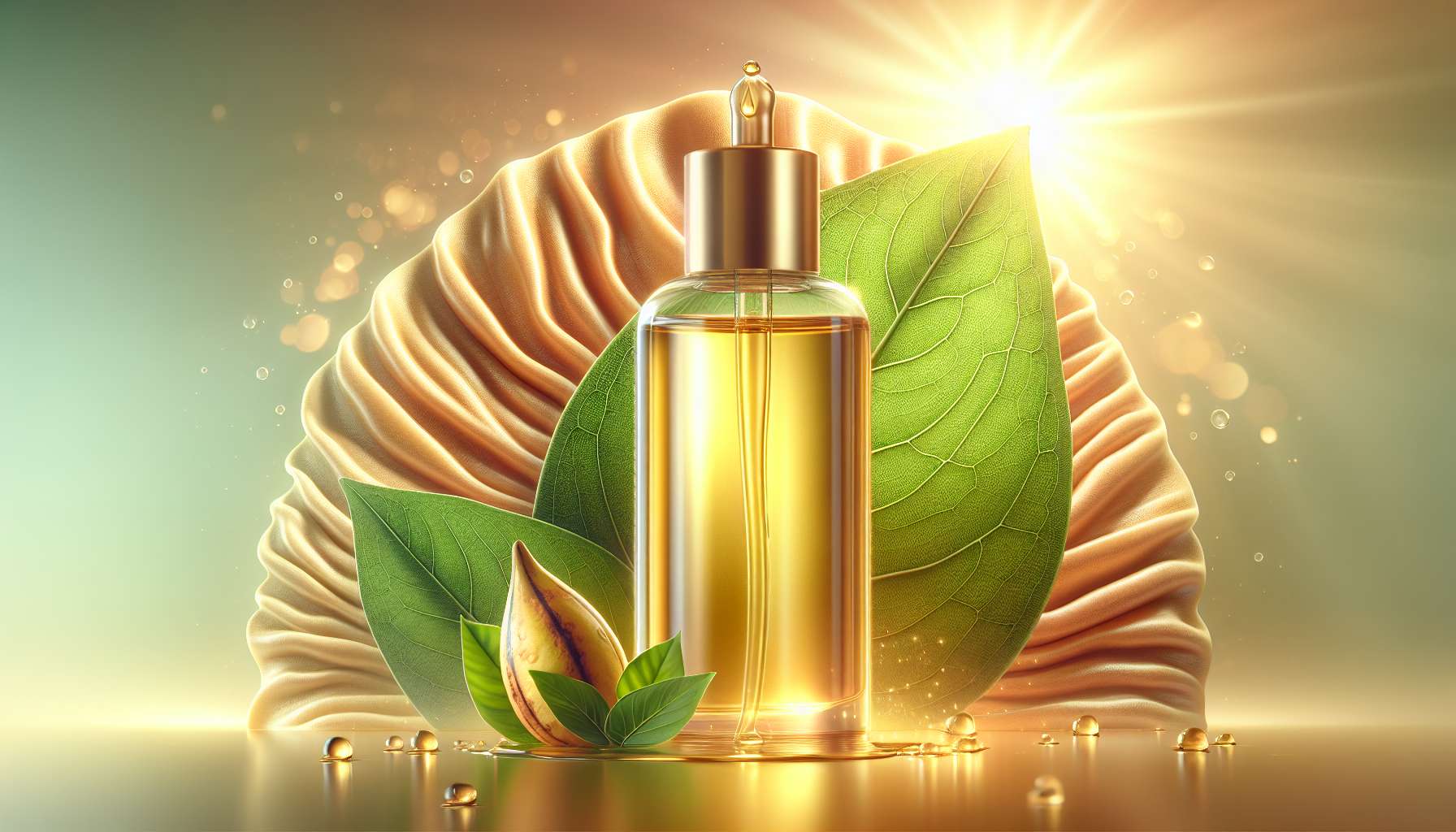Exploring the Power of Marula Oil for Wrinkles
When it comes to skincare, the quest for smooth, youthful skin is a universal desire. Over the years, countless products have flooded the market promising to turn back the clock and reduce the appearance of wrinkles. However, one ingredient that has been gaining popularity in the world of skincare is marula oil. This natural oil, extracted from the kernels of the marula fruit, is renowned for its hydrating, anti-aging properties. In this comprehensive guide, we will delve deep into the benefits of marula oil for wrinkles, exploring its origins, scientific evidence, and practical applications. Let’s uncover the secrets of this prized ingredient and how it can revolutionize your skincare routine.
The Origins of Marula Oil
Marula oil has been used for centuries by indigenous communities in Southern Africa for its myriad of benefits. The marula tree, also known as Sclerocarya birrea, is native to the region and has been revered for its nutritional and medicinal properties. The oil is extracted from the kernels found within the fruit of the marula tree, which is rich in essential fatty acids, antioxidants, and vitamins. Traditionally, marula oil was used topically to moisturize the skin, heal wounds, and protect against environmental damage.
Today, marula oil has transcended its traditional uses and has become a staple ingredient in many skincare products. Its lightweight texture, fast-absorbing nature, and nutrient-rich composition make it an ideal choice for those looking to combat signs of aging such as wrinkles, fine lines, and age spots.
The Science Behind Marula Oil
What sets marula oil apart from other skincare oils is its impressive nutrient profile. Marula oil is rich in antioxidants such as vitamin C and E, which help to neutralize free radicals and protect the skin from oxidative stress. Free radicals are unstable molecules that can damage the skin’s collagen and elastin, leading to premature aging and the formation of wrinkles.
Additionally, marula oil is high in omega-6 and omega-9 fatty acids, which help to nourish and hydrate the skin. These fatty acids strengthen the skin’s natural barrier, locking in moisture and preventing transepidermal water loss. By maintaining the skin’s moisture levels, marula oil can help plump up the skin, smooth out wrinkles, and improve overall skin texture.
Furthermore, marula oil contains a unique blend of monounsaturated fatty acids, such as oleic acid, which have anti-inflammatory properties. Inflammation is a key driver of skin aging, leading to the breakdown of collagen and elastin fibers. By reducing inflammation, marula oil can help to calm irritated skin, reduce redness, and minimize the appearance of wrinkles.
Benefits of Marula Oil for Wrinkles
There are numerous benefits of incorporating marula oil into your skincare routine, especially when it comes to combating wrinkles. Here are some key advantages of using marula oil for wrinkle reduction:
1. Hydration
One of the primary causes of wrinkles is dehydrated skin. As we age, our skin produces less oil, leading to dryness and the formation of fine lines. Marula oil is a potent moisturizer that can deeply hydrate the skin, replenishing lost moisture and restoring a youthful glow. Its lightweight texture allows it to penetrate deep into the skin, delivering essential nutrients and hydration where it is needed most.
Regular use of marula oil can help to plump up the skin, smooth out wrinkles, and improve skin elasticity. By keeping the skin well-hydrated, marula oil can prevent the formation of new wrinkles and minimize the appearance of existing ones.
2. Antioxidant Protection
Another key benefit of marula oil is its antioxidant properties. Antioxidants help to neutralize free radicals, which are harmful molecules that can damage the skin’s collagen and elastin fibers. By protecting the skin from oxidative stress, marula oil can help to prevent premature aging and reduce the appearance of wrinkles.
Regular use of marula oil can help to boost the skin’s natural defenses, strengthen the skin barrier, and improve overall skin health. By incorporating marula oil into your skincare routine, you can protect your skin from environmental damage, pollution, and UV radiation, all of which contribute to the formation of wrinkles.
3. Anti-Inflammatory Benefits
Inflammation is a key driver of skin aging, leading to the breakdown of collagen and elastin fibers. Marula oil contains anti-inflammatory compounds that can help to calm irritated skin, reduce redness, and minimize the appearance of wrinkles. By reducing inflammation, marula oil can promote a more even skin tone, improve skin texture, and enhance overall skin health.
Regular use of marula oil can help to soothe sensitive skin, alleviate redness, and improve conditions such as eczema and psoriasis. By incorporating marula oil into your skincare routine, you can enjoy a calmer, more balanced complexion and reduce the visible signs of aging.
4. Collagen Boosting
Collagen is a crucial protein that gives skin its structure and firmness. As we age, the production of collagen decreases, leading to sagging skin, wrinkles, and loss of elasticity. Marula oil contains essential nutrients that can help to boost collagen production, plump up the skin, and reduce the appearance of wrinkles.
Regular use of marula oil can help to stimulate the skin’s natural collagen synthesis, improve skin firmness, and enhance overall skin tone. By incorporating marula oil into your skincare routine, you can maintain a youthful, radiant complexion and combat the visible signs of aging.
5. Gentle and Non-Comedogenic
One of the key benefits of marula oil is its gentle, non-comedogenic nature. Unlike some other oils that can clog pores and cause breakouts, marula oil is lightweight and easily absorbed by the skin. It is suitable for all skin types, including oily, dry, sensitive, and acne-prone skin.
Marula oil is non-greasy and does not leave a residue on the skin, making it an ideal choice for those with oily or combination skin. It is hypoallergenic and unlikely to cause irritation or allergic reactions, making it a safe and effective option for those with sensitive skin.
6. Versatile and Multi-Purpose
Marula oil is a versatile ingredient that can be used in a variety of ways to target different skincare concerns. In addition to its anti-aging properties, marula oil can help to soothe dry, itchy skin, reduce redness and inflammation, and promote overall skin health.
You can use marula oil as a standalone treatment or incorporate it into your existing skincare routine. It can be used as a facial moisturizer, serum, eye cream, or spot treatment, depending on your individual needs. Its lightweight texture and fast-absorbing nature make it easy to incorporate into your daily skincare regimen.
7. Sustainable and Ethical Sourcing
When choosing skincare products, it is important to consider the environmental and ethical implications of the ingredients used. Marula oil is sourced from the kernels of the marula fruit, which are sustainably harvested by local communities in Southern Africa. The production of marula oil provides employment opportunities and supports the livelihoods of indigenous populations, contributing to sustainable development in the region.
By choosing products that contain ethically sourced marula oil, you can support environmentally responsible practices and promote social and economic development in communities where the marula tree grows. This ensures that the benefits of marula oil are not only limited to skincare but also extend to the people and ecosystems that depend on it.
Expert Opinions
Many skincare experts and dermatologists recommend marula oil for its potent anti-aging properties and versatility. Dr. Nina Desai, a board-certified dermatologist, explains, “Marula oil is a powerhouse ingredient that can benefit all skin types. Its lightweight texture, fast-absorbing nature, and nutrient-rich composition make it an excellent choice for those looking to combat wrinkles, fine lines, and other signs of aging.”
Dr. Desai recommends incorporating marula oil into your skincare routine to hydrate, nourish, and protect your skin. She advises, “Apply a few drops of marula oil to clean, damp skin and gently massage it in using upward strokes. Allow the oil to absorb fully before applying any additional skincare products. You can use marula oil morning and night for best results.”
Common Misconceptions
Despite its numerous benefits, there are some misconceptions about marula oil that are worth addressing. One common myth is that marula oil is too heavy for oily or acne-prone skin. In reality, marula oil is non-comedogenic and lightweight, making it suitable for all skin types, including oily and acne-prone skin.
Another misconception is that marula oil is expensive and not worth the investment. While marula oil may have a higher price point compared to other skincare oils, its potent anti-aging properties and versatility make it a valuable addition to your skincare routine. A little goes a long way with marula oil, so a small amount can yield significant benefits for your skin.
Final Thoughts
In conclusion, marula oil is a powerhouse ingredient that offers a myriad of benefits for the skin, especially when it comes to combating wrinkles. Its antioxidant, anti-inflammatory, and hydrating properties make it an ideal choice for those looking to maintain youthful, radiant skin. By incorporating marula oil into your skincare routine, you can hydrate, nourish, and protect your skin, improving overall skin health and reducing the visible signs of aging.
Whether you have dry, sensitive, oily, or combination skin, marula oil is a versatile and effective option that can address a range of skincare concerns. Its sustainable and ethical sourcing practices also make it a conscious choice for those looking to support environmentally responsible skincare brands. Discover the transformative power of marula oil for wrinkles and unlock the secret to ageless beauty.
Sources:
1. Baumann, L. (2007). Cosmetic dermatology: principles and practice. McGraw-Hill Medical.
2. Mukwana, S., Laker, J., & Onyango, G. (2012). Fatty acyl composition, oxidative stability, antioxidant and antimicrobial properties of marula (Sclerocarya birrea) seed oil. Food Chemistry, 133(4), 1136-1142.
3. Yuni, L., & Nurlaila, L. (2019). Marula Oil (Sclerocarya Birrea): A Review of Its Medicinal Properties and Cosmetics Application. International Journal of Scientific Research in Science and Technology, 5(4), 326-332.







